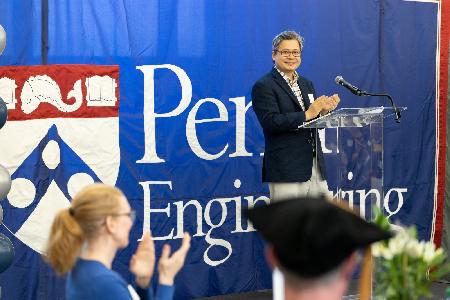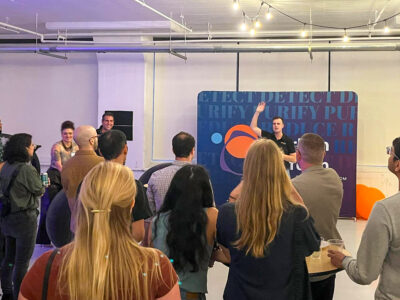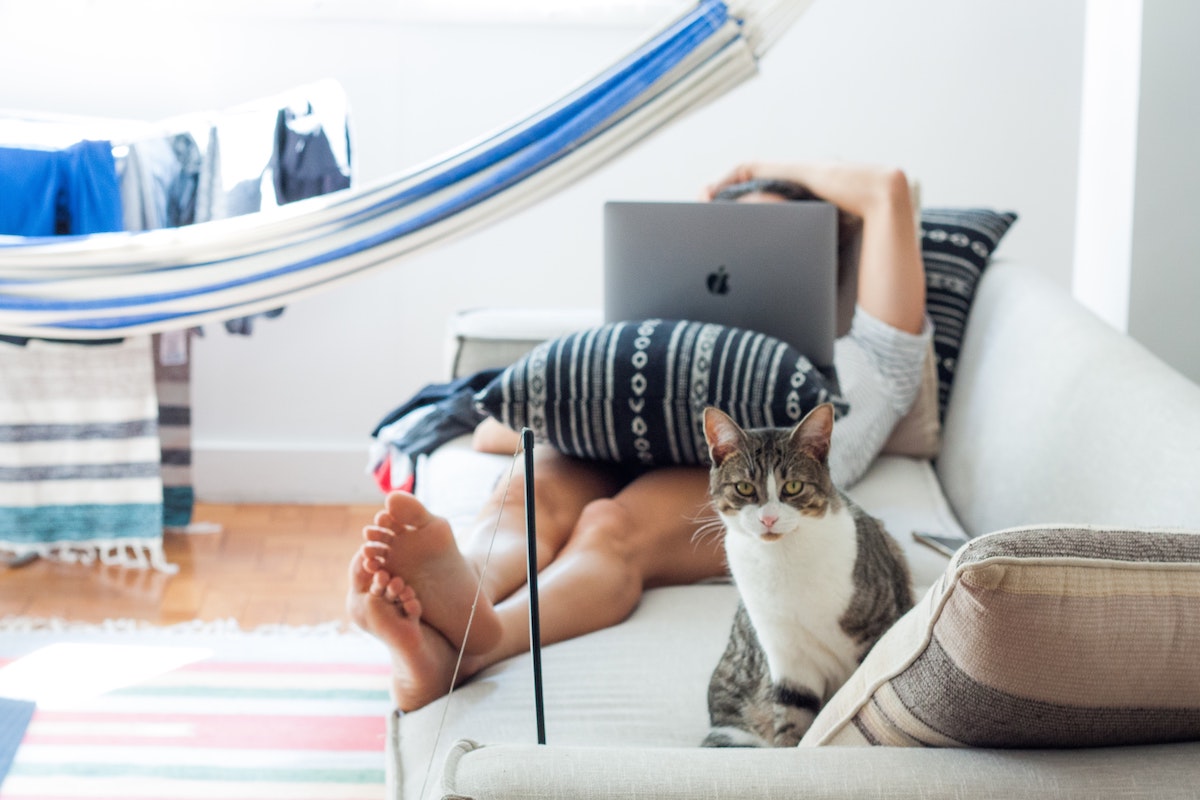Last week, in honor of the anniversary of the COVID-19 pandemic changing our lives drastically, we asked the Philly tech community: How has this last year changed the way you think about how we work?
Many of us have been working at our coffee or dining tables, in a spare bedroom or between childcare duties. We know that the pandemic has upended work for many women, especially, and that some of us may never return to their offices again.
These local technologists shared their memories of their last days in the office and how the last year has changed how they work, and what that means to them.
‘The cherry trees were just beginning to bloom’
Yoh’s head of training, Maureen Pomeroy, said she remembers some hesitation about joining the crowds of the Philadelphia Flower Show the week before the shutdown. Pomeroy had also been in touch with friends and colleagues in Seattle and New York, where case counts were rising quickly before the virus reached Philadelphia.

Maureen Pomeroy. (Photo via LinkedIn)
“Thursday, March 12 was my last day in our Philly office on Spring Garden,” Pomeroy recalled. “The cherry trees were just beginning to bloom.”
A new team member had started on Monday, March 9, and Pomeroy told them, “Hey, this may seem strange, but I’m not shaking hands this week.”
The last year has made her realize that her default for work has switched to remote, she said.
“It’s made all of us think about the importance of being in an office, and the ease of working from wherever, for jobs that can easily be done remotely, like mine,” she said. “The default has flipped from being in the office every day, and sometimes working remotely, to working remotely most of the time, and planning to be in the office as needed for in-person meetings when our office is fully open again.”
‘We’re all in this weird situation together’
Ryan Wall, an account executive at Brian Communications who works in healthcare comms, said he’d been watching the virus numbers closely last March.
“I vividly remember sitting in the kitchen with my colleagues, eating lunch and chatting while the Johns Hopkins tracker updated on the television monitor,” he said.
When they packed up to WFH for a few weeks, he luckily grabbed some key documents and resources. This last year has made him more aware of the shift from “work/life balance” to “work/life integration,” he said. Wall expects to go into work maybe a few times a week in 2021.
“Working and living in the same tight space started out as a challenge, and it still can be, but by now I have a better routine each day,” he said. “I am cognizant of the importance of over-communicating with my teams, but I also make it a priority to take time in the middle of the day to get up, eat lunch and get outside when the weather is nice. Nobody bats an eye when ‘life’ pops up, because we’re all in this weird situation together.”
‘There are some positives to take from it’
Andrew Hoagland, former founder of Vetd, joined startup Nextmv last year. He’s since only met one coworker — founder Carolyn Mooney — in person: The pair were meeting at Front Street Cafe in Fishtown when they learned that Demo Day for Y Combinator had been turned virtual.

Andrew Hoagland. (Courtesy photo)
The company had planned on being remote-first before the pandemic, but the global crisis gave them a crash course.
“The pandemic has actually helped us in the sense that being on a Zoom call is normal and expected,” Hoagland said. “There has also been a massive influx of remote-friendly options available (which again helps us). While the pandemic on the whole has been absolutely brutal, there are some positives to take from it.”
‘We are even more efficient’
Other companies who may have began with the culture of in-person work have embraced remote moving forward. Digital agency MoxieLabs’ CEO Justin Matthews said the business has been flourishing in its remote state.
“I think we’ve figured out that we are even more efficient by not being in an office together everyday,” he said — something we’ve heard from other tech companies in the mid-Atlantic.
‘When I think about it, it makes me sad’
While some are reaping the rewards of remote work, for others, the work-life balance proves harder. DJ Kreshbach, Dell Boomi’s chief of staff to the CEO, said the pandemic has changed how she thinks about work “so much.”

DJ Kreshbach. (Photo via LinkedIn)
“I have a toddler, so I have to constantly remind myself that it’s ‘time’ to unplug from work,” she said.
The company has allowed her to choose to work remotely, and she’s unsure when or what a return to office would look like. Her last memories in the company’s King of Prussia offices involved a 400+ team member event for International Women’s Day.
“And the stories were all about work-life balance and unplugging. It was filled with empowering team member stories, great networking, and just an overall tribute to our culture,” Kreshbach said. “When I think about it, it makes me sad, because I don’t know when we’ll be able to return, and if hugging will be the same, or networking, or anything.”
Before you go...
Please consider supporting Technical.ly to keep our independent journalism strong. Unlike most business-focused media outlets, we don’t have a paywall. Instead, we count on your personal and organizational support.
3 ways to support our work:- Contribute to the Journalism Fund. Charitable giving ensures our information remains free and accessible for residents to discover workforce programs and entrepreneurship pathways. This includes philanthropic grants and individual tax-deductible donations from readers like you.
- Use our Preferred Partners. Our directory of vetted providers offers high-quality recommendations for services our readers need, and each referral supports our journalism.
- Use our services. If you need entrepreneurs and tech leaders to buy your services, are seeking technologists to hire or want more professionals to know about your ecosystem, Technical.ly has the biggest and most engaged audience in the mid-Atlantic. We help companies tell their stories and answer big questions to meet and serve our community.
Join our growing Slack community
Join 5,000 tech professionals and entrepreneurs in our community Slack today!

A new model for thinking about how to grow regional economies: the Innovation Ecosystem Stack

Penn dean is a startup founder and ‘engineer at heart’ who loves the connection between education and business

20 tech community events in October you won’t want to miss



